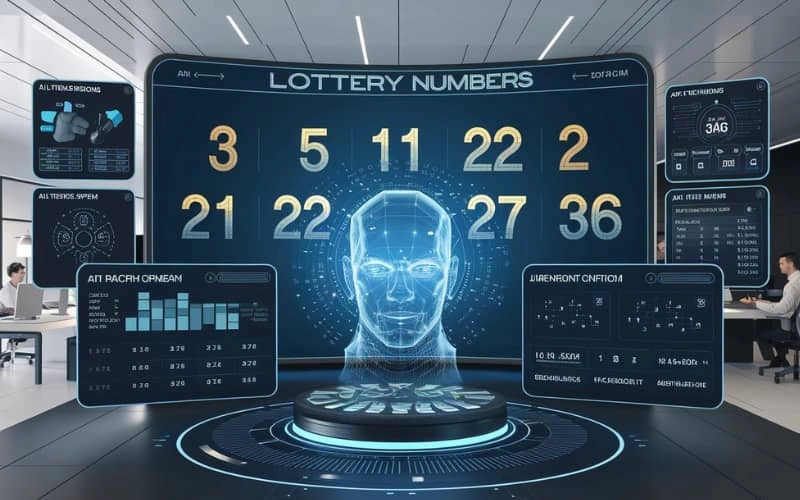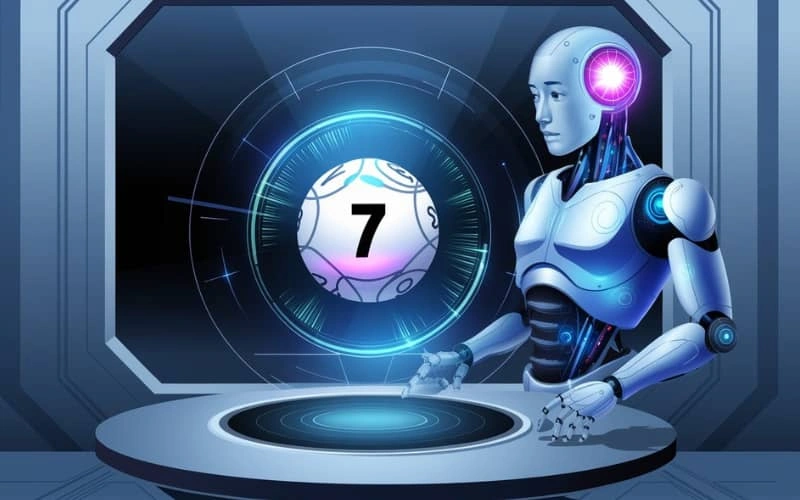
ai to predict lottery? Exploring Technology’s Role in Jackpot Success
The idea of using technology to predict lottery outcomes has long been a topic of fascination and curiosity ai to predict lottery. With AI advancements transforming industries from healthcare to finance, the question arises: Can AI predict lottery wins? While it sounds like a scenario out of science fiction, the potential for AI to predict lottery results has sparked interest among tech enthusiasts. 82 lottery mod, mathematicians, and players alike ai to predict lottery. However, before you rely on AI to predict your next jackpot, it’s essential to dive deeper into the capabilities and limitations of AI in the realm of lottery prediction.
In this article, we’ll explore the role of artificial intelligence in lottery predictions ai to predict lottery, discuss the scientific basis behind it, and investigate whether AI could potentially increase your chances of winning or if it’s just a game of chance.
Understanding the Basics: How Does the Lottery Work?
To understand the potential of AI to predict lottery outcomes, it’s important to first comprehend how the lottery works. Lotteries, whether national or state-run, are designed to be random. Typically, the winning numbers are drawn through mechanical or digital random number generators ai to predict lottery, ensuring that each number combination has an equal probability of being selected.
This randomness is the central challenge when it comes to applying AI to predict lottery outcomes. While AI can analyze patterns and trends in data, lotteries are, by design, unpredictable. The key question is whether AI can uncover hidden patterns or provide some insight into the seemingly random nature of these draws.
How AI Works in Predicting Patterns
AI and machine learning (ML) are powerful tools for analyzing vast amounts of data, finding patterns, and making predictions based on historical trends. For example, AI can be used in fields like stock market forecasting, weather prediction ai to predict lottery, and even sports analytics. When it comes to the lottery, AI models could analyze historical draw data to see if any number combinations appear more frequently than others or to identify trends in certain number sequences.
However, while AI is excellent at detecting patterns in large datasets, the key element in AI to predict lottery success is the inherent randomness of lottery draws. A typical AI approach would involve:
- Data Collection: AI can collect data from past lottery results to look for recurring patterns, frequency of number appearances, and statistical anomalies.
- Pattern Recognition: AI can use machine learning algorithms to identify clusters of numbers or combinations that have appeared more frequently.
- Prediction Models: Using these patterns, AI models could try to predict the likelihood of certain numbers being drawn in future draws.
However, even with the most advanced AI models, 82 lottery hack the randomness built into lotteries makes it incredibly difficult for AI to generate reliable predictions.
The Limitations of AI in Predicting Lottery Wins
While AI to predict lottery sounds promising, several limitations make it highly unlikely that AI can offer a surefire way to win the jackpot. Some of these limitations include:
1. Lottery Draws Are Random
At its core, the lottery is designed to be random. Whether it’s a mechanical drawing or a random number generator, every draw is independent of the last. This means that even if AI detects certain numbers appearing more frequently in the past, it doesn’t guarantee they’ll appear again. The chance of winning remains the same for every ticket, regardless of historical data.
2. Data Doesn’t Predict the Future
While AI is exceptional at analyzing past data, predicting the future is a different challenge. In lottery games, past draws are not a reliable indicator of future outcomes. AI could find that a particular set of numbers has been drawn more often, but this doesn’t mean those numbers have a better chance of being selected in the next draw.
3. AI Can’t Control Random Number Generators
Most modern lotteries use digital random number generators (RNGs), which are designed to ensure fairness and randomness. These RNGs do not follow a pattern that could be exploited, even by advanced AI algorithms. Therefore, AI’s ability to influence or predict the outcome of a truly random draw is highly limited.
4. Overfitting Data
AI models can sometimes “overfit” data, meaning they focus too much on past patterns that don’t actually exist or are merely coincidences. In the case of the lottery, this can lead to misguided predictions based on false assumptions, which ultimately can’t translate into consistent wins.
Can AI Improve Your Odds of Winning?
While AI to predict lottery results isn’t likely to unlock a jackpot-winning formula, there are other ways in which AI could enhance your lottery experience:
1. Optimizing Number Selection
AI can assist by helping players choose number combinations based on statistical analysis of historical trends. Although this doesn’t increase the odds of winning, it can help players select less common combinations. If you avoid playing the most popular combinations, you might have a better chance of keeping the full prize if you win, as fewer people would be playing the same numbers.
2. Syndicate Play Optimization
AI can be used to optimize syndicate play. By pooling money with others, AI could help determine the best combination of tickets to buy to cover as many possible number combinations as possible. This doesn’t increase your chance of winning a single ticket, but it does increase the overall chance of winning across a large pool of tickets.
3. Tracking Trends
Some people enjoy playing numbers that are related to significant dates or patterns they’ve noticed. AI could help automate this process by tracking trends and providing suggestions for combinations. However, this is still more about playing the odds with a structured approach rather than accurately predicting lottery numbers.
Real-World Use of AI in Lotteries
In reality, AI is not used by most lottery systems to predict results, as the purpose of the lottery is to provide fair and random outcomes. However, some players and companies have explored using AI for personal strategies. While there are plenty of websites and apps that claim to offer “AI-based lottery predictions,” they are often more about entertainment than providing genuine, scientifically-backed methods.
Some lottery systems, particularly online ones, use AI to detect fraud or guarantee fair play. AI can analyze patterns of ticket purchasing, user behavior, nh344 lottery result today and identify potential anomalies, ensuring that the lottery remains legitimate and secure.
Conclusion: Is AI the Key to Winning the Lottery?
The short answer is no. AI to predict lottery results is an intriguing concept, but the randomness and fairness inherent in lottery systems make it impossible for any technology to guarantee success. While AI can certainly assist in providing analysis and insights, the odds of winning the lottery are not influenced by the number combinations you select, regardless of any predictions made by AI.
Ultimately, the lottery is a game of chance, and no amount of data, algorithms, or artificial intelligence can change that fundamental truth. So, if you decide to rely on AI-based predictions, remember to enjoy the process, but don’t count on it to predict your jackpot. Playing the lottery is about fun, dreams, and, yes, a bit of luck—just the way it was intended.

